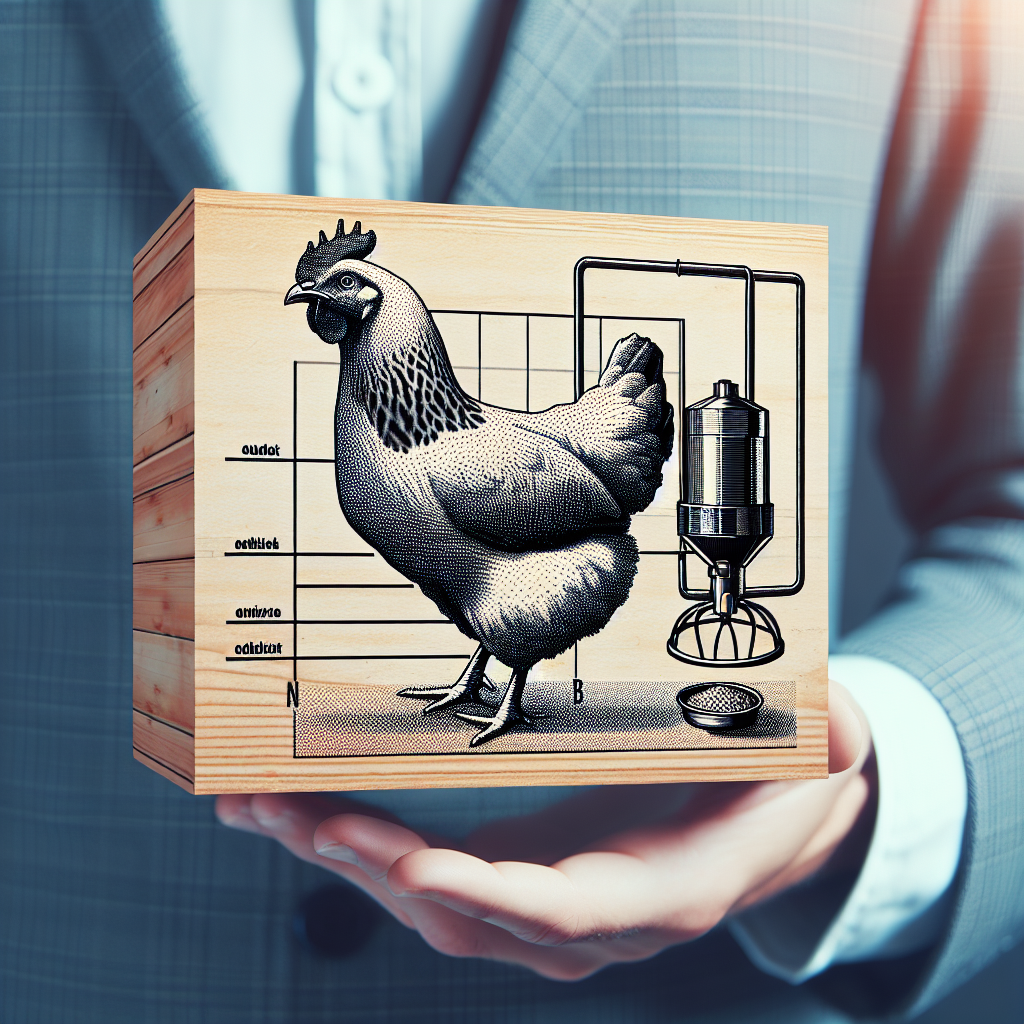Have you ever wondered how to ensure consistent egg production across your flock of chickens? It’s a common concern for many poultry owners, as the quantity and quality of eggs can vary from bird to bird. However, by implementing a few simple strategies and paying attention to key factors, you can maximize egg production and provide your flock with the consistency they need. In this article, we’ll explore some practical tips and insights to help you achieve consistent egg production, ensuring a steady supply of fresh, delicious eggs.
Maintaining a Healthy Flock
Having a healthy and productive flock is essential for any backyard poultry enthusiast. By following a few key strategies, you can ensure that your flock stays healthy and consistently produces high-quality eggs. In this article, we will discuss various aspects of maintaining a healthy flock, including providing proper nutrition, ensuring an adequate water supply, controlling flock size, managing stress levels, maintaining proper lighting, implementing a routine, ensuring good health, maintaining cleanliness, and monitoring egg production.
Providing Proper Nutrition
Proper nutrition plays a crucial role in the overall health and egg production of your flock. To ensure your chickens receive a balanced diet, it is important to choose a feed that meets their nutritional needs. Look for commercially available feeds specifically formulated for laying hens, as they contain the necessary balance of protein, carbohydrates, vitamins, and minerals.
Monitoring the quality of the feed is equally important. Check for signs of spoilage such as mold, pests, or an unpleasant odor. Avoid using any feed that appears questionable, as it can lead to health issues for your flock. Additionally, consider supplementing their diet with necessary nutrients, such as calcium, by providing crushed oyster shells or eggshells. This will help maintain their overall health and support consistent egg production.
Ensuring Adequate Water Supply
Water is essential for the overall health and productivity of your flock. Chickens require a constant supply of clean and fresh water to stay hydrated and maintain optimal egg production. Ensure that your chickens always have access to water by providing multiple water stations throughout their living area.
It is crucial to monitor the quality of the water regularly. Clean the water containers regularly to remove any debris, algae, or dirt that can contaminate the water supply. You can also use automated watering systems, such as nipple drinkers or water dispensers, to ensure a steady and clean water supply.
Remember, chickens will consume more water during hot weather, so it is important to check water levels frequently and refill as needed to prevent dehydration and ensure consistent egg production.
Controlling Flock Size
Maintaining an appropriate flock size is essential for optimal egg production and overall flock health. A good rule of thumb is to maintain a hen-to-rooster ratio of roughly 10 hens per rooster. This ratio helps prevent over-mating and excessive stress on the hens.
To maximize egg production, consider culling unproductive hens. Over time, some hens may become less productive or stop laying altogether. By regularly assessing the productivity of each hen and removing underperforming ones from the flock, you can focus resources on more productive members.
Additionally, as hens age, their ability to lay eggs diminishes. To maintain consistent egg production, replace aging hens with younger hens that have a higher potential for productivity.
Managing Stress Levels
Stress can have a significant impact on the health and productivity of your flock. To maintain a healthy and consistently productive flock, it is essential to manage stress levels effectively. Providing sufficient space within the coop and run allows your chickens to move freely and reduces the likelihood of stress-related issues.
Creating a comfortable environment is important in minimizing stress. Ensure proper ventilation to maintain optimal air quality and temperature within the coop. Consider providing shaded areas during hot weather and insulated areas during colder months.
Disturbances can also cause stress in chickens, so minimize loud noises, sudden movements, or interactions with unfamiliar animals. A calm and peaceful environment will help your flock thrive and maintain consistent egg production.
Maintaining Proper Lighting
Lighting plays a crucial role in regulating the reproductive cycle and egg production of laying hens. To ensure consistent egg production, provide an appropriate day length for your flock. On average, chickens require about 14-16 hours of daylight to maintain optimal egg production.
During winter months when daylight hours are shorter, consider using artificial lighting in the coop to supplement the natural light. By installing a timer, you can provide additional hours of light to ensure the required day length is met.
Avoid sudden changes in light, as it can disrupt the reproductive cycle and lead to a decrease in egg production. Gradual adjustments to lighting schedules are key in maintaining a consistent pattern and maximizing egg production.
Implementing a Routine
A routine is crucial in maintaining a healthy and productive flock. Establishing a consistent feeding schedule helps your chickens develop a regular eating pattern, leading to a more efficient digestive system and optimal nutrient absorption. Ensure feed is provided at the same time each day, with any necessary supplements included.
Setting up a regular cleaning routine for the coop and nesting area is essential to maintain cleanliness and prevent the spread of diseases. Clean the coop regularly, removing any accumulated waste, feathers, or other debris. Ensure proper waste management by disposing of waste in a suitable manner.
Creating a structured egg collection schedule helps ensure eggs are collected in a timely manner, reducing the risk of breakage or damage. Regularly collect eggs and store them properly to maintain their quality and freshness.
Ensuring Good Health
Regularly monitoring the health of your flock is crucial in maintaining their well-being and consistent egg production. Observe your chickens daily for any signs of illness or injury, such as changes in behavior, loss of appetite, or abnormal droppings. Any concerning signs should be promptly addressed to prevent the spread of disease or further deterioration of health.
Administer vaccinations and deworming treatments according to the recommendations for your specific chicken breed. These preventive measures help protect your flock against common diseases and parasites that can impact their health and egg production.
Promptly treat any illnesses or injuries that may arise. Consult with a veterinarian or poultry expert if needed, and follow their guidance to ensure the appropriate treatment is administered. Regular health care practices will support good health and consistent egg production in your flock.
Maintaining Cleanliness
Cleanliness is essential in keeping your flock healthy and productive. Regularly clean the coop and nesting areas to prevent the accumulation of waste, which can attract pests, harbor bacteria, and lead to various health issues. Remove any soiled bedding, droppings, feathers, or other debris from the coop, replacing it with fresh bedding as needed.
Practice proper waste management by disposing of chicken waste in a suitable manner. Consider composting the waste to create nutrient-rich fertilizer for your garden or lawn, or dispose of it in a way that adheres to local regulations.
Prevent the spread of diseases by practicing good biosecurity measures. Limit contact between your flock and other poultry or wild birds, and avoid bringing in new birds without proper quarantine procedures. Regularly sanitize and disinfect equipment used in the coop, such as waterers and feeders.
Monitoring Egg Production
Monitoring egg production is essential in assessing the overall health and productivity of your flock. Record the daily egg production to identify any fluctuations or patterns. A sudden decrease in egg production could indicate underlying health issues or stressors that need to be addressed.
Analyzing egg quality is equally important. Check for abnormalities such as soft or thin-shelled eggs, double yolks, or irregular shapes. These can be indicators of nutritional imbalances, age-related changes, or other factors that may affect egg production.
Identifying patterns or changes in egg production can help you make informed decisions about nutrition, flock management, and any necessary adjustments. Regular monitoring allows you to address issues promptly, leading to a consistently productive flock.
By following these guidelines and implementing proper flock management practices, you can ensure a healthy and productive flock that consistently lays high-quality eggs. Maintaining a healthy environment, providing proper nutrition and lighting, implementing a routine, and monitoring their health and productivity will help you enjoy the benefits of a thriving backyard poultry flock.




